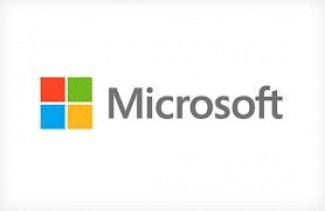Linux, the popular open source operating system, has been around for over 20 years. Despite being both free and highly customizable, Linux has, for the majority of its history, remained a niche player when compared to Microsoft Corporation (NASDAQ:MSFT)‘s Windows.
That is, until recently.
Google Inc (NASDAQ:GOOG)‘s Android is on pace to become the dominant operating system worldwide, while the future of Google Inc (NASDAQ:GOOG)’s other Linux-based operating system, Chrome OS, looks ever bright. At the same time, International Business Machines Corp. (NYSE:IBM) is preparing to push Linux more aggressively among business users.

In April, research firm Gartner predicted that Android would replace Windows by 2017. If current trends continue to play out, that prediction doesn’t seem too outlandish.
In just the last few years, Google Inc (NASDAQ:GOOG)’s mobile operating system has exploded in popularity, and now accounts for about 79% of smartphones and about 62% of tablets shipped worldwide. Given that Google Inc (NASDAQ:GOOG) gives Android away for free, and numerous hardware manufacturers have eagerly adopted it, it seems unlikely that Android will cede its dominance anytime soon.
At the same time, sales of traditional PCs — Windows’ bread and butter — continue to decline. In July, Gartner reported that global PC shipments fell 10.9% in the second quarter — the fifth consecutive quarterly drop. And don’t expect a turnaround in the near future — Microsoft admits that the traditional PC will continue to struggle.
But even on the traditional PC, Windows could have its hands full. Chrome OS, like Android, is also Linux based, but unlike Android, it was designed with traditional PCs in mind.
Linux desktops, including those running Chrome OS, make up just a tiny sliver of the total desktop operating system market. Still, among laptops cheaper than $300, Chromebooks now account for 25% of the market, and are the fastest-growing part of the PC industry according to NPD (via Bloomberg).
IBM’s second $1 billion investment
Twelve years ago, International Business Machines Corp. (NYSE:IBM) said it would invest $1 billion to promote Linux. That investment led to rise of Linux-based servers, including International Business Machines Corp. (NYSE:IBM)’s own machines. While Linux is not dominant when it comes to servers — its market share is only about 20% — it is significant. Back in February, research firm IDC cited Linux servers as a growth area for the industry; with the shift to the cloud helping to drive demand.
Perhaps that growth will accelerate still further. IBM is about to make a second billion dollar investment into Linux, focusing specifically on its Power Systems servers. According to ZDNet, International Business Machines Corp. (NYSE:IBM) believes that Linux-based Power Systems could bring in new customers, specifically those aiming to take advantage of the cloud and big data.
According to IDC, IBM continues to lead in the server market, taking about 28% of the industry’s revenue in the second quarter. Yet, the server market as a whole is shrinking, and International Business Machines Corp. (NYSE:IBM)’s server revenue actually declined about 10% from the prior year.
Part of the reason for the decline may be the growing trend of companies building their own servers. Major Internet players like Google Inc (NASDAQ:GOOG) and Facebook have been designing their own servers for years; the social network just built a data center in Sweden that uses 100% Facebook designed-servers.
Perhaps International Business Machines Corp. (NYSE:IBM)’s latest initiative could help turn its server business around.





